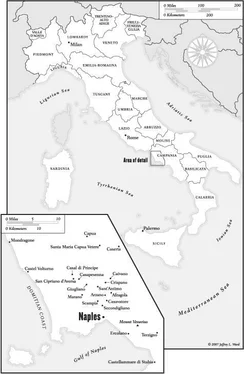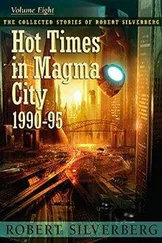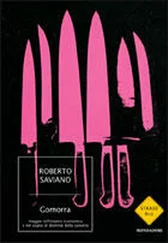Roberto Saviano - Gomorrah - A Personal Journey into the Violent International Empire of Naples’ Organized Crime System
Здесь есть возможность читать онлайн «Roberto Saviano - Gomorrah - A Personal Journey into the Violent International Empire of Naples’ Organized Crime System» весь текст электронной книги совершенно бесплатно (целиком полную версию без сокращений). В некоторых случаях можно слушать аудио, скачать через торрент в формате fb2 и присутствует краткое содержание. Жанр: Старинная литература, на английском языке. Описание произведения, (предисловие) а так же отзывы посетителей доступны на портале библиотеки ЛибКат.
- Название:Gomorrah: A Personal Journey into the Violent International Empire of Naples’ Organized Crime System
- Автор:
- Жанр:
- Год:неизвестен
- ISBN:нет данных
- Рейтинг книги:5 / 5. Голосов: 1
-
Избранное:Добавить в избранное
- Отзывы:
-
Ваша оценка:
- 100
- 1
- 2
- 3
- 4
- 5
Gomorrah: A Personal Journey into the Violent International Empire of Naples’ Organized Crime System: краткое содержание, описание и аннотация
Предлагаем к чтению аннотацию, описание, краткое содержание или предисловие (зависит от того, что написал сам автор книги «Gomorrah: A Personal Journey into the Violent International Empire of Naples’ Organized Crime System»). Если вы не нашли необходимую информацию о книге — напишите в комментариях, мы постараемся отыскать её.
Gomorrah: A Personal Journey into the Violent International Empire of Naples’ Organized Crime System — читать онлайн бесплатно полную книгу (весь текст) целиком
Ниже представлен текст книги, разбитый по страницам. Система сохранения места последней прочитанной страницы, позволяет с удобством читать онлайн бесплатно книгу «Gomorrah: A Personal Journey into the Violent International Empire of Naples’ Organized Crime System», без необходимости каждый раз заново искать на чём Вы остановились. Поставьте закладку, и сможете в любой момент перейти на страницу, на которой закончили чтение.
Интервал:
Закладка:
Xian was to take part in an auction. We went to an elementary-school classroom, but there were no children and no teacher, just sheets of construction paper with big letters tacked to the walls. About twenty company reps were milling around. Xian was the only foreigner. He only greeted two people, and without excessive familiarity. A car pulled into the school courtyard, and three people entered the room: two men and a woman. The woman was wearing a leather skirt and high-heeled patent-leather shoes. Everyone rose to greet her. They took their places and the auction began. One of the men drew three vertical lines on the blackboard and wrote as the woman dictated. In the first column:
“800”
This was the number of garments to make. The woman listed the types of fabric and the quality of the articles. A businessman from Sant’ Antimo went over to the window, turning his back to the rest of us, and offered his prices and times:
“Forty euros apiece in two months.”
His proposal was written on the board:
“800/40/2”
The other businessmen didn’t look worried. He hadn’t dared enter the realm of the impossible, which evidently was to their liking. But not to the buyers’. So the bidding continued.
The auctions the big Italian brands hold in this area are strange. No one wins the contract and no one loses. The game consists in entering or not entering the race. Someone throws out an offer, stating his time and price. If his conditions are accepted, he won’t be the only winner, however. His offer is like a head start the others can try to follow. When the brokers accept a bid, the other contractors decide if they want in; whoever agrees gets the fabric. It’s sent directly to the port of Naples, where the contractors pick it up. But only one of them will be paid: the one who delivers first, and with top-quality merchandise. The other players are free to keep the fabric, but they don’t get a cent. The fashion houses make so much money that material isn’t a loss worth considering. If a contractor takes advantage of the system to have free fabric but repeatedly fails to deliver, he’s excluded from future auctions. In this way the brokers are guaranteed speed: if someone falls behind, someone else will take his place. There’s no relief from the rhythms of high fashion.
To the joy of the woman behind the desk, another hand went up. A well-dressed contractor, elegant.
“Twenty euros in twenty-five days.”
In the end the bid was accepted. Nine of the twenty contractors signed on as well. But not Xian. He wouldn’t have been able to coordinate quality and speed in such a short time and at such low prices. When the auction was over, the woman wrote up a list of the contractors’ names and phone numbers and the addresses of their factories. The winner invited everyone to his house for lunch. His factory was on the ground floor, he and his wife lived on the second, his son on the third. “I’m applying for a permit to add another floor. My other son is getting married,” he declared proudly. As we climbed the stairs, he continued to tell us about his family, which, like his villa, was under construction.
“Don’t ever put men in charge of the female workers, it only causes problems. I’ve got two sons, and both of them married employees. Put the fags in charge. Make the fags manage the shifts and inspect the work, like in the old days …”
The workers, men and women, came up to toast the new contract. They faced a grueling schedule: first shift from 6 a.m. to 9 p.m., with an hour’s break to eat, second shift from 9 p.m. to 6 a.m. The women were wearing makeup and earrings, and aprons to protect their clothes from the glue, dust, and machine grease. Like Superman, who takes off his shirt and reveals his blue costume underneath, they were ready to go out to dinner as soon as they removed their aprons. The men were sloppier, in sweatshirts and work pants. After the toast one of the guests took the owner aside, along with the others who had agreed to the auction price. They weren’t hiding, but simply respecting the ancient custom of not discussing money at table. Xian explained to me in great detail that the guest—the very image of a bank teller—was discussing interest rates. But he was not from a bank. Italian brands pay only when the work is completed. Or rather, only after it has been accepted. Everything—salaries, production costs, even shipping—must be paid in advance by the manufacturers, so the clans loan money to the factories in their territories. The Di Lauros in Arzano, the Verdes in Sant’ Antimo, the Cennamos in Crispano, and so on. The Camorra offers low rates, 2 to 4 percent. No one should have an easier time obtaining bank credit than these companies, who produce for the Italian fashion world, for the market of markets. But they’re phantom operations, and bank directors don’t meet with ghosts. Camorra liquidity is also the only way for factory employees to obtain a mortgage. Thus in towns where more than 40 percent of the residents support themselves by moonlighting, six out of ten families still manage to buy a home. Even the contractors who don’t satisfy the requirements of the designer labels manage to find a buyer. They sell the garments to the clans to be put on the fake-goods market. All the runway fashions, all the glitz for the most elegant premieres, comes from here. The Las Vegas towns and Casarano, Tricase, Taviano, and Melissano in Capo di Leuca, the lower Salento region, are the principal centers for black-market fashion. It all comes from here, from this hole. All merchandise has obscure origins: such is the law of capitalism. But to observe the hole, to see it in front of you, well, it causes a strange sensation. An anxious heaviness. Like the truth weighing on your stomach.
One of the winning contractor’s workers was particularly skilled: Pasquale. A lanky figure, tall, slim, and a bit hunchbacked; his frame curved behind his neck onto his shoulders, a bit like a hook. The stylists sent designs directly to him, articles intended for his hands only. His salary didn’t fluctuate, but his tasks varied, and he some how conveyed an air of satisfaction. I liked him immediately, the moment I caught sight of his big nose. Even though he was still young, Pasquale had the face of an old man. A face that was constantly buried in fabric, fingertips that ran along seams. Pasquale was one of the only workers who could buy fabric direct. Some brandname houses even trusted him to order materials directly from China and inspect the quality himself. Which is why he and Xian knew each other. They’d met at the port. One day we all had lunch together there. When we finished eating, we said goodbye to Pasquale, and Xian and I got in the car and headed toward Vesuvius. Volcanoes are usually depicted in dark colors, but Vesuvius is green; from a distance, it’s a vast mantle of moss. But before we got to the turnoff for the towns around Vesuvius, the car pulled into the courtyard of a building. Pasquale was there waiting for us. I had no idea why. Pasquale got out of his car and climbed straight into the trunk of Xian’s.
“What’s going on? Why’s he getting in the trunk?”
“Don’t worry. Now we’ll go to Terzigno, to the factory.”
A sort of Minotaur figure got in behind the wheel. He’d been in Pasquale’s car and seemed to know exactly what to do. He put the engine in reverse, backed out the gate, and, before pulling out into the street, produced a pistol. A semiautomatic. He racked a round and stuck it between his legs. I didn’t breathe, but the Minotaur, catching sight of me in the rearview mirror, realized I was staring at him anxiously.
“They tried to do us in once.”
“Who?”
I tried to get him to explain it all from the beginning.
“The ones who don’t want the Chinese learning to work in high fashion. The ones who just want fabric from China, nothing else.”
Читать дальшеИнтервал:
Закладка:
Похожие книги на «Gomorrah: A Personal Journey into the Violent International Empire of Naples’ Organized Crime System»
Представляем Вашему вниманию похожие книги на «Gomorrah: A Personal Journey into the Violent International Empire of Naples’ Organized Crime System» списком для выбора. Мы отобрали схожую по названию и смыслу литературу в надежде предоставить читателям больше вариантов отыскать новые, интересные, ещё непрочитанные произведения.
Обсуждение, отзывы о книге «Gomorrah: A Personal Journey into the Violent International Empire of Naples’ Organized Crime System» и просто собственные мнения читателей. Оставьте ваши комментарии, напишите, что Вы думаете о произведении, его смысле или главных героях. Укажите что конкретно понравилось, а что нет, и почему Вы так считаете.












